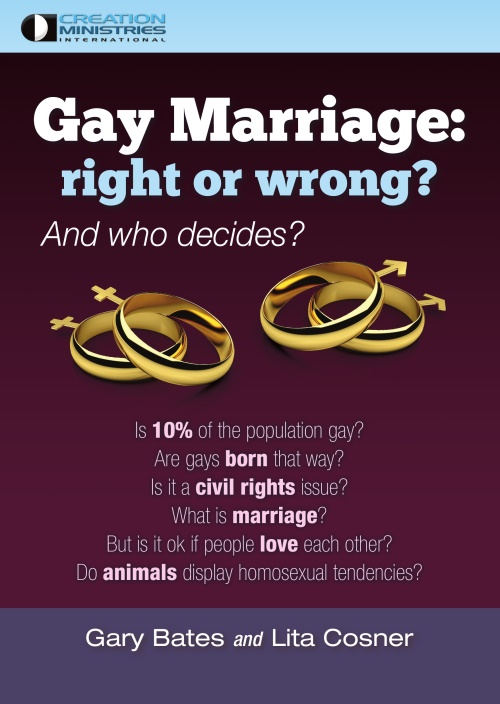Engaging the transgender debate with truth and grace
A review of God and the Transgender Debate by Andrew T. Walker

Christians in Western culture today have to deal with subjects that even 20 years ago would have been almost unthinkable to most. And the issues of gender and sexuality are among the toughest that confront Christians today—recently, the Nashville statement was released as one attempt to define the Christian view of sex and gender. How do we maintain a biblical worldview when simply believing that there are two biological sexes, readily identifiable in humans and determined by genetics, is now considered by many to be hate speech?
Andrew T. Walker’s book God and the Transgender Debate seeks to help Christians walk through some of the complicated issues surrounding the discussion of transgender individuals. Transgender people are individuals who, though usually biologically healthy males or females, feel that they are actually the opposite sex from what their biology would indicate. So for instance, a ‘trans man’ would be a biological female who nonetheless maintains that she is male, and who seeks to alter her identity to fit that designation. Some adopt this identity very early in life, and some doctors even prescribe puberty-blocking hormones to prevent gender-confused youth from developing as normal boys and girls, making it easier to ‘transition’ to the opposite sex later.
One of the most helpful aspects of Walker’s book is that before he addresses the facts, he addresses the attitude with which we as Christians should come to the debate. He points to the compassion that Jesus showed to hurting people, even when he was correcting their unbiblical practices and ideas:
Jesus loved people. That’s important for me to remember as I write a book with the word “debate” in its title. And it’s good for you to remember as you read a book with the word “transgender” in its title. Because at its heart, this debate isn’t about a debate. It’s about people: precious people made in the image of God who are hurting, who are confused, who are angry, who are scared, who may have been told by their family that they are unwelcome. It’s about some people who are delighted with how culture has shifted when it comes to gender identity, and other people who are concerned about how culture has shifted (p. 14).
However, the grace he calls for in responding to transgender individuals does not exclude the truth taught in Scripture regarding what it means to be a man or a woman.
How we got here
To properly respond to the transgender issue, we have to understand how culture got to the place where we can be confused about such foundational truths regarding human identity. He points to various elements including the loss of Christianity’s influence in key areas of the culture and the rise of radical individualism.
The Christian’s foundation
In a context where fundamental definitions of human identity seem up for grabs, it’s necessary to return to the foundations of where the Christian worldview comes from. Walker identifies God, the Creator, as the authority. Furthermore, the Gospel shows that God is good and wants what is best for us. “A crucified Creator is a God who has the authority to tell us what to do, who has the wisdom to know what is best for us, and who has proved that he can be trusted to tell us what is best for us” (p. 44).
Furthermore, God has designed mankind as male and female. “Maleness isn’t only anatomy, but anatomy shows that there is maleness. And femaleness isn’t only anatomy, but anatomy shows that there is femaleness. Men and women are more than just their anatomy, but they are not less” (p. 54). And because this is such a foundational designed aspect of humanity, rebelling against this part of our identity “can never result in happiness, flourishing, and joy, whatever it promises” (p. 55).
However, this does not mean that the church should fall into the trap of enforcing stereotypical expressions of maleness and femaleness. Walker cites examples such as a boy preferring to play with dolls or a girl who prefers to watch football as examples where someone may mistakenly try to enforce stereotypes of what is considered acceptable for boys or girls, even though there is nothing inherently sinful about a boy playing with a doll or a girl watching football (p. 55).
Part of the reality of living in a sinful world is that we are all marred by sin, but the Gospel offers hope for restoration, and Walker beautifully expresses this truth.
Engaging the culture like Christ did
Walker helpfully gives specific advice about how to engage the issue without neglecting either truth or love, including how the church might respond to the conversion of transgender people and advice for talking with children about transgenderism, including children who feel like they might be transgender. One chapter is devoted to answer 12 ‘tough questions’ people have about practical issues related to the transgender debate.
As Christians, we are called to be prepared to engage the culture with biblical truth and the love of Christ. If we hope to share the Gospel with people who are confused regarding gender, we need to be educated about the biblical issues involved. And Walker’s book gives a good introduction to how Christians can think about this issue and engage the culture.



Readers’ comments
Comments are automatically closed 14 days after publication.